West Coast Immuno-Oncology Xchange
San Francisco
28 September 2022
Welcome to hubXchange’s West Coast Immuno-Oncology Xchange 2022, bringing together executives from pharma and biotech to address and find solutions to the key issues faced in developing immuno-oncology therapies, through a series of highly-interactive roundtable discussions.
Discussion topics will cover Immune Biomarkers, Translational Research, Clinical Development, Combination Strategies and Next-Generation Therapies.
Take advantage of this unique and productive meeting format designed for maximum engagement, collaboration and networking with your peers.
NOTE: This will be an In-Person event
VENUE DETAILS: DoubleTree by Hilton San Francisco Airport Hotel, 835 Airport Blvd., Burlingame CA 94010-9949
Immune Biomarkers
Opening Address & Keynote Presentation
Immune Perspectives – Standing Back and Looking Forward
The immune system is possibly the most pleiotropic system constituting human biology. This coupled with the ever-increasing technological advancements in the field of immunology has generated a proverbial flood of knowledge relating to the immune systems involvement in almost of every aspect of human health and disease. Biopharmaceutical companies have harnessed the adaptability and power of the immune system to create multiple novel therapies that merely a decade ago would have been almost science fiction.This presentation provides a perspective on the development of the field of immunology and also looks forward to opportunities that will generate further innovation.
Chief Medical Officer, Synexa
Justin is a medical doctor, immunologist and pharmacologist and a co-founder and CMO of Synexa.
His primary focus is to understand our clients’ objectives in new drug development and to
implement biomarker strategies that bring real insight to the challenges of clinical development and
the immunological underpinning of health and disease.

Challenges of using multiplex technologies and spatial phenotyping to dissect tumor microenvironment in translation and clinical research
- Limitations of predictive biomarkers in immuno-oncology
- Improving biomarker discovery with multiplex immunofluorescence
- Application of spatial biomarkers in translational and clinical research
Director, Clinical Biomarkers
Compugen
Yu Liang is currently Director of Clinical Biomarkers at Compugen heading implementation of biomarkers in clinical trials to develop drugs targeting immune checkpoints. He brings in 20 years of expertise and leadership in precision medicine, including assay development in research and IVD, and application of genomic and genetic profiling for patient stratification. Before Compugen, he was Director of Translational Sciences in Oncology at Ipsen, leading translation of pre-clinical biomarkers into early phase clinical trials. Prior to Ipsen, he led development of clinical biomarker for drugs targeting amino acid metabolism at Calithera and managed the clinical biomarker portfolios of Ibrutinib for non-Hodgkin’s lymphomas at Pharmacyclics.
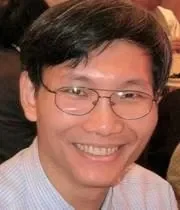
Advanced Phenotyping of the Tumor Immune Microenvironment
- The development and validation process of an automated high throughput, high-plex multiplexed assay to derive meaningful biological insights
- Comparison of multiplexed staining to standard IHC DAB staining
- Considerations for reproducibility-single marker staining vs multiplexed staining
Senior Manager, FAS, Global, Ultivue
Dr. Bonnie Phillips is the Senior Manager of the Global Field Applications Team at Ultivue in Cambridge, MA, where she leads the efforts of the FAS team to educate and train customers on Ultivue’s InSituPlex technology and their image analysis needs. She first joined Ultivue in June of 2018 as a Field Application Scientist. Before working at Ultivue, she was a postdoctoral Fellow at University of North Carolina, Chapel Hill where she gained a large amount of experience with the troubleshooting and optimization of fluorescent immunohistochemistry assays and imaging. She has a PhD in Biomedical Sciences with a focus on immunology and infectious disease from Tulane University in New Orleans, LA.
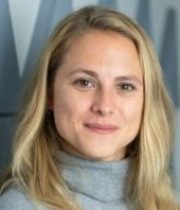
Networking Lunch
The modern immuno-oncology drug program has a great need for multi-faceted, complex biomarkers. However, the default choice for diagnostic assay development remains low-plex, manual pathology reads. These assays can produce high variability across interpreters, and lack the full contextual data to truly understand the drug’s effect on biology. The high cost of getting a drug to market includes the intense competition over finding the correct patients, making fast and accurate decisions critical to success. Data-centric, cell-based pathology analyses provide context beyond traditional scoring for any biomarker, along with a significant decrease in variability. The current paradigm of manual, single-marker reads may compromise patient selection and reduce the chance of finding responders.
Spatial biology solutions are now emerging for several demands across the immuno-oncology space. In particular, there is an urgent need to precisely characterize and understand the tumor microenvironment (TME). However, the biomarker requirements for a drug can also be tailored to its program. A CLIA-certified tissue imaging partner can generate spatial insights from monoplex, multiplex or CISH assays – allowing for specific customization to the study and the correct patients to be identified.
Chief Medical Officer, Flagship Biosciences
Dr. Roberto Gianani, Chief Medical Officer at Flagship Biosciences, Inc., is a practicing pathologist board certified in anatomic, clinical, and pediatric pathology. He completed a fellowship in surgical pathology and transfusion medicine. His research interests include immuno-oncology and image analysis as it pertains to pathology. Roberto’s professional experience includes several years as an academic pathologist at the University of Colorado and has held numerous positions as Laboratory Director. Roberto has published extensively in the field on immunology, pathology, and autoimmunity. His work at Flagship reflects his interest, contributing to the company’s continued efforts to help detect cancer at the cellular level.
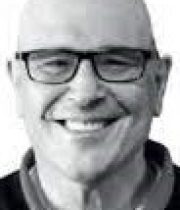
Immune landscape and gene signatures in immuno-therapy
- Association observed between T (immune) cell infiltration treatment outcome in cancer patients treated with CPI or cellular immunotherapy
- Gene expression signatures might be useful to assess immune and or stromal infiltration in the TME, however there is no validated assay available for patient stratification/selection
- Does size matter? Which is better to assess the immune landscape? Large gene signatures which could contain numerous members of a given pathway or small, more focused gene sets which contain only a few marker genes?
- Tissue pre-analytics is key to gain high quality gene expression information, therefore only FFPE tissues which reviewed by a pathologist should be used to analyze the tumor immune landcape
Senior Director, Fate Therapeutics
Peter M Szabo MD, PhD is a Senior Director of Clinical Translation at Fate Therapeutics a clinical-stage biopharmaceutical company dedicated to the development of human induced pluripotent stem cells derived cellular immunotherapies for patients with cancer.
Dr. Szabo received his medical degree and PhD from the Semmelweis University and his Bachelor of Science degree in Computer Science from the Eotvos Lorand University, Hungary. His education was followed by a fellowship at the National Cancer Institute (NCI) in biomarker statistics and bioinformatics. Most recently, dr. Szabo served as Associate Director of Translational Medicine and Bioinformatics and Bristol-Myers Squibb.
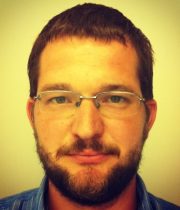
3:30-4:00pm
4:00-4:10pm
Afternoon Refreshments
- Introduction to InSituPlex® DNA-barcoding and antibody staining technology for multiplex fluorescence applications
- How to make use of multi-parameter data within theTME – spatial mapping,dynamic range of expression, and co-localization of markers on individual cells
- Application focused case studies
Senior Manager, FAS, Global, Ultivue
Dr. Bonnie Phillips is the Senior Manager of the Global Field Applications Team at Ultivue in Cambridge, MA, where she leads the efforts of the FAS team to educate and train customers on Ultivue’s InSituPlex technology and their image analysis needs. She first joined Ultivue in June of 2018 as a Field Application Scientist. Before working at Ultivue, she was a postdoctoral Fellow at University of North Carolina, Chapel Hill where she gained a large amount of experience with the troubleshooting and optimization of fluorescent immunohistochemistry assays and imaging. She has a PhD in Biomedical Sciences with a focus on immunology and infectious disease from Tulane University in New Orleans, LA.

Predictive biomarkers for cancer immunotherapy
- How can we best utilize preclinical models for IO biomarker discovery and patient selection?
- Are virally driven tumors unique for IO therapy?
- Platforms and strategies to understand and predict tumor responses in complex immune environment.
Principal Investigator, Discovery Biology, RAPT Theraputics
George Katibah Ph.D. is a Principal investigator in the discovery biology group at RAPT Therapeutics developing small molecule drugs to for immune-oncology and inflammatory conditions including atopic dermatitis. Prior to RAPT therapeutics George held positions of increasing responsibility at Aduro Biotech working on several programs across multiple therapeutic modalities including the first in human small molecule STING agonists and personalized cancer vaccine programs. George received his Ph.D. in molecular and cellular biology from UC Berkeley.
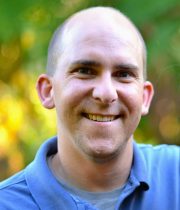
Translational Research
Opening Address & Keynote Presentation
Immune Perspectives – Standing Back and Looking Forward
The immune system is possibly the most pleiotropic system constituting human biology. This coupled with the ever-increasing technological advancements in the field of immunology has generated a proverbial flood of knowledge relating to the immune systems involvement in almost of every aspect of human health and disease. Biopharmaceutical companies have harnessed the adaptability and power of the immune system to create multiple novel therapies that merely a decade ago would have been almost science fiction. This presentation provides a perspective on the development of the field of immunology and also looks forward to opportunities that will generate further innovation.
Chief Medical Officer, Synexa
Justin is a medical doctor, immunologist and pharmacologist and a co-founder and CMO of Synexa.
His primary focus is to understand our clients’ objectives in new drug development and to
implement biomarker strategies that bring real insight to the challenges of clinical development and
the immunological underpinning of health and disease.

Pre-clinical in vitro and in vivo models for improved toxicity prediction
- Exploring the key factors for successful implementation of safety studies
- Discussing the future of pharmacological models – will in vivo studies still be relevant in the future?
- Bridging the gap in preclinical safety studies – can in vitro assays provide better species relevant data?
- What are the new innovative methodologies which will be critical for in vitro safety pharmacology for the future?
VP Program Development, 3T Biosciences
Dr. Venita De Almeida is the Vice President of Program Development at 3T Biosciences in South San Francisco, CA. Venita started her career with her Ph.D. at Northwestern University, where she conducted structure function studies on the GHRH receptor. Venita then did her postdoctoral fellowship at Genentech and was instrumental in demonstrating the anti-tumor activity of multiple biologics that inhibited the Wnt signalling pathway. She continued research in the Oncology department at Genentech, where worked on multiple ADC programs from target validation to identification of development candidates. In 2013, Venita joined Sutro Biopharma and was responsible for setting up preclinical development and led several development programs including the lead clinical program, STRO-002. Venita joined 3T Biosciences in August 2021 where she leads Program Development and oversees preclinical development among other activities.
During her career, Venita has worked on several biologics including fusion proteins, antibodies, ADCs and bispecifics; and has been involved in numerous INDs and clinical programs.

1-2-1 Meetings/Networking Break
Morning Refreshments
Early stage characterization and selection of immuno-oncology leads through in-vitro cell-based assays and beyond
- From checkpoint inhibitors towards neoepitope vaccines, does one size fits it all?
- Fit for purpose assay development
- Strengths, limitations and challenges of translational assays
CTO and founder, ImmunXperts
Sofie Pattyn (CTO and founder, ImmunXperts) has over 25 years of experience in the field of immunogenicity assessment (vaccines and biotherapeutics) and in vitro assay development with a focus on functional assays for immunogenicity, immune oncology and Cell and Gene Therapy products. She has extensive hands-on lab experience and has managed and coached several In Vitro teams over the last decade. From 2008 till 2013 she was Head of the In Vitro Immunogenicity group at AlgoNomics (Ghent, Belgium) and Lonza Applied Protein Services (Cambridge, UK). Prior to that, she worked at Innogenetics, Belgium for over 15 years
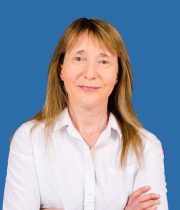
Networking Lunch
The modern immuno-oncology drug program has a great need for multi-faceted, complex biomarkers. However, the default choice for diagnostic assay development remains low-plex, manual pathology reads. These assays can produce high variability across interpreters, and lack the full contextual data to truly understand the drug’s effect on biology. The high cost of getting a drug to market includes the intense competition over finding the correct patients, making fast and accurate decisions critical to success. Data-centric, cell-based pathology analyses provide context beyond traditional scoring for any biomarker, along with a significant decrease in variability. The current paradigm of manual, single-marker reads may compromise patient selection and reduce the chance of finding responders.
Spatial biology solutions are now emerging for several demands across the immuno-oncology space. In particular, there is an urgent need to precisely characterize and understand the tumor microenvironment (TME). However, the biomarker requirements for a drug can also be tailored to its program. A CLIA-certified tissue imaging partner can generate spatial insights from monoplex, multiplex or CISH assays – allowing for specific customization to the study and the correct patients to be identified.
Chief Medical Officer, Flagship Biosciences
Dr. Roberto Gianani, Chief Medical Officer at Flagship Biosciences, Inc., is a practicing pathologist board certified in anatomic, clinical, and pediatric pathology. He completed a fellowship in surgical pathology and transfusion medicine. His research interests include immuno-oncology and image analysis as it pertains to pathology. Roberto’s professional experience includes several years as an academic pathologist at the University of Colorado and has held numerous positions as Laboratory Director. Roberto has published extensively in the field on immunology, pathology, and autoimmunity. His work at Flagship reflects his interest, contributing to the company’s continued efforts to help detect cancer at the cellular level.

How to select the right translational screening model to monitor IO agents
- Although immuno-oncology agents are demonstrating durable responses in select patients in the clinic, many challenges remain.
- A variety of translational screening models may be used by researchers to evaluate novel IO agents in the preclinical setting.
- Advantages and limitations of syngeneic models, humanized immune system models, humanized knock in and GEMM models, and surrogate molecules
Senior Scientist, Amgen
Stephanie C. Casey Parks obtained her B.S. in Microbiology, Immunology, and Molecular Genetics from UCLA and her PhD from UC Irvine in cancer biology. She performed her postdoctoral work at Stanford, where she studied the role of the MYC oncogene in modulating the anti-tumor immune response using genetically engineered mouse models. At Amgen, her group works to understand in vivo biology of emerging targets, characterize the pharmacodynamic and efficacy responses to new molecules, and create new syngeneic and humanized models. Stephanie’s research interests include both discovery and translational oncology research, spanning from tumor-intrinsic biology to immuno-oncology and the tumor microenvironment.
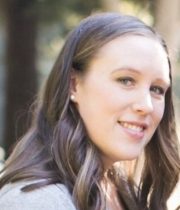
3:30 – 4:00pm
Clinical Development
Opening Address & Keynote Presentation
Immune Perspectives – Standing Back and Looking Forward
The immune system is possibly the most pleiotropic system constituting human biology. This coupled with the ever-increasing technological advancements in the field of immunology has generated a proverbial flood of knowledge relating to the immune systems involvement in almost of every aspect of human health and disease. Biopharmaceutical companies have harnessed the adaptability and power of the immune system to create multiple novel therapies that merely a decade ago would have been almost science fiction. This presentation provides a perspective on the development of the field of immunology and also looks forward to opportunities that will generate further innovation.
Chief Medical Officer, Synexa
Justin is a medical doctor, immunologist and pharmacologist and a co-founder and CMO of Synexa.
His primary focus is to understand our clients’ objectives in new drug development and to
implement biomarker strategies that bring real insight to the challenges of clinical development and
the immunological underpinning of health and disease.

- What are key mechanistic insights into combination immunotherapy development?
- What predictive biomarkers are most useful in driving early decision making?
- What is the role of ctDNA and tumor growth inhibition modeling in informing early decision making in early phase clinical trials?
- Are there any strategies in identifying patients and tumor types for immunotherapy combinations?
- What are some of the dose optimization strategies for Cancer Immunotherapy combinations?
Senior Director, Clinical Pharmacology, Gilead Sciences
Sree Kasichayanula is a Sr Director and therapeutic head for Immuno-Oncology Clinical Pharmacology at Gilead Sciences. He has previously worked in leadership positions in the field of Cancer Immunotherapy at AbbVie, Amgen and at BMS. Sree has published extensively in the field of Clinical Pharmacology and Cancer Immunotherapy.
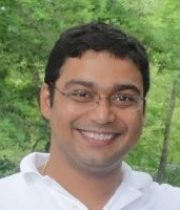
The modern immuno-oncology drug program has a great need for multi-faceted, complex biomarkers. However, the default choice for diagnostic assay development remains low-plex, manual pathology reads. These assays can produce high variability across interpreters, and lack the full contextual data to truly understand the drug’s effect on biology. The high cost of getting a drug to market includes the intense competition over finding the correct patients, making fast and accurate decisions critical to success. Data-centric, cell-based pathology analyses provide context beyond traditional scoring for any biomarker, along with a significant decrease in variability. The current paradigm of manual, single-marker reads may compromise patient selection and reduce the chance of finding responders.
Spatial biology solutions are now emerging for several demands across the immuno-oncology space. In particular, there is an urgent need to precisely characterize and understand the tumor microenvironment (TME). However, the biomarker requirements for a drug can also be tailored to its program. A CLIA-certified tissue imaging partner can generate spatial insights from monoplex, multiplex or CISH assays – allowing for specific customization to the study and the correct patients to be identified.
Chief Medical Officer, Flagship Biosciences
Dr. Roberto Gianani, Chief Medical Officer at Flagship Biosciences, Inc., is a practicing pathologist board certified in anatomic, clinical, and pediatric pathology. He completed a fellowship in surgical pathology and transfusion medicine. His research interests include immuno-oncology and image analysis as it pertains to pathology. Roberto’s professional experience includes several years as an academic pathologist at the University of Colorado and has held numerous positions as Laboratory Director. Roberto has published extensively in the field on immunology, pathology, and autoimmunity. His work at Flagship reflects his interest, contributing to the company’s continued efforts to help detect cancer at the cellular level.

1-2-1 Meetings/ Networking Break
3:30-4:00pm
1-2-1 Meetings/ Networking Break
Validating drug efficacy in phase III trials trial designs to consider tumour heterogeneity
- Companion Diagnostics in Clinical Trials
- Biomarker readiness for companion diagnostics
- Filing of Companion Diagnostics
Senior Director, Oncology Biomarker Development Genentech
Luciana Molinero is a Senior Director in the Oncology Biomarker Development department at Genentech, where she leads a group of scientists developing biomarkers for novel cancer immunotherapies. Luciana joined Genentech in 2014, developing companion diagnostics and generating reverse translation biomarker insights for Tecentriq and other immune oncology drugs in breast and gynecological cancers. Luciana received her PhD in Biology at the University of Buenos Aires (Argentina) and had a postdoctoral training at the University of Chicago in immune tolerance prior to joining Genentech
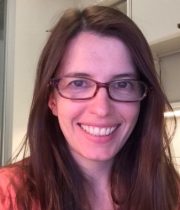
Combination Strategies
Opening Address & Keynote Presentation
Immune Perspectives – Standing Back and Looking Forward
The immune system is possibly the most pleiotropic system constituting human biology. This coupled with the ever-increasing technological advancements in the field of immunology has generated a proverbial flood of knowledge relating to the immune systems involvement in almost of every aspect of human health and disease. Biopharmaceutical companies have harnessed the adaptability and power of the immune system to create multiple novel therapies that merely a decade ago would have been almost science fiction. This presentation provides a perspective on the development of the field of immunology and also looks forward to opportunities that will generate further innovation.
Chief Medical Officer, Synexa
Justin is a medical doctor, immunologist and pharmacologist and a co-founder and CMO of Synexa.
His primary focus is to understand our clients’ objectives in new drug development and to
implement biomarker strategies that bring real insight to the challenges of clinical development and
the immunological underpinning of health and disease.

Morning Refreshments
Networking lunch
The modern immuno-oncology drug program has a great need for multi-faceted, complex biomarkers. However, the default choice for diagnostic assay development remains low-plex, manual pathology reads. These assays can produce high variability across interpreters, and lack the full contextual data to truly understand the drug’s effect on biology. The high cost of getting a drug to market includes the intense competition over finding the correct patients, making fast and accurate decisions critical to success. Data-centric, cell-based pathology analyses provide context beyond traditional scoring for any biomarker, along with a significant decrease in variability. The current paradigm of manual, single-marker reads may compromise patient selection and reduce the chance of finding responders.
Spatial biology solutions are now emerging for several demands across the immuno-oncology space. In particular, there is an urgent need to precisely characterize and understand the tumor microenvironment (TME). However, the biomarker requirements for a drug can also be tailored to its program. A CLIA-certified tissue imaging partner can generate spatial insights from monoplex, multiplex or CISH assays – allowing for specific customization to the study and the correct patients to be identified.
Chief Medical Officer, Flagship Biosciences
Chief Medical Officer, Flagship Biosciences
Dr. Roberto Gianani, Chief Medical Officer at Flagship Biosciences, Inc., is a practicing pathologist board certified in anatomic, clinical, and pediatric pathology. He completed a fellowship in surgical pathology and transfusion medicine. His research interests include immuno-oncology and image analysis as it pertains to pathology. Roberto’s professional experience includes several years as an academic pathologist at the University of Colorado and has held numerous positions as Laboratory Director. Roberto has published extensively in the field on immunology, pathology, and autoimmunity. His work at Flagship reflects his interest, contributing to the company’s continued efforts to help detect cancer at the cellular level.

- Immunotherapies such as immune checkpoint blockade (ICB) and adoptive cell therapy (ACT) have revolutionized cancer care, however, only a minority of patients experience long-term benefits
- Several combination strategies are actively being evaluated in the clinic/approved to overcome resistance to single agent therapies
- Emerging clinical data and biomarker strategies should help inform on optimal therapeutic combinations to maximize efficacy without synergistic toxicities
Senior Scientist, Amgen
Hayley Ma, PhD, is a Scientist at Amgen Inc, where she leads a Pharmacology group that provides preclinical support for the immuno-oncology pipeline. Prior to joining Amgen in 2019, Hayley led the in vivo pharmacology team at Kineta, Inc. to evaluate the efficacy of RIG-I targeted small molecules in immuno-oncology. Hayley received her PhD from the Johns Hopkins University School of Medicine, and later conducted postdoctoral studies in the laboratory of Dr. Elizabeth Jaffee where she worked on elucidating the role of combination agonist and antagonist antibodies in anti-tumor immune responses. She has co-authored 14 research articles and reviews in high impact peer-reviewed journals.
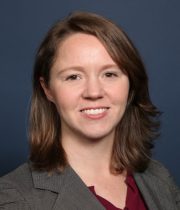
Next-Generation Therapies
Opening Address & Keynote Presentation
Immune Perspectives – Standing Back and Looking Forward
The immune system is possibly the most pleiotropic system constituting human biology. This coupled with the ever-increasing technological advancements in the field of immunology has generated a proverbial flood of knowledge relating to the immune systems involvement in almost of every aspect of human health and disease. Biopharmaceutical companies have harnessed the adaptability and power of the immune system to create multiple novel therapies that merely a decade ago would have been almost science fiction. This presentation provides a perspective on the development of the field of immunology and also looks forward to opportunities that will generate further innovation.
Chief Medical Officer, Synexa
Justin is a medical doctor, immunologist and pharmacologist and a co-founder and CMO of Synexa.
His primary focus is to understand our clients’ objectives in new drug development and to
implement biomarker strategies that bring real insight to the challenges of clinical development and
the immunological underpinning of health and disease.

Using next-gen multi-specific antibodies for the treatment of solid tumors
Novel strategies using multi-specific antibodies for the treatment of solid tumors:
- Limitations of CD3 T-cell engagers
- Overcoming immunosuppressive TME
- Mitigating on-target, off-tumor toxicity
- Engaging additional immune effector cells besides T-cells
President, CSO Rondo Therapeutics
Nathan is a co-founder of Rondo Therapeutics and currently serves as President and CSO. Prior to starting Rondo, Nathan was Chief Technology Officer at Teneobio where he played a key role in starting the company and led the team that was responsible for lead discovery, lead optimization, and development of the T-cell engager platform that was acquired in 2021. Prior to Teneobio, Nathan was a co-founder and CEO of SwitchGear Genomics, a venture-backed HTS platform company that was acquired in 2013. Earlier in his career, Nathan served as the Technical Director of the Stanford ENCODE project and received his Ph.D from Stanford University. Nathan also serves on the Board of Governors for the Stanford Medicine Alumni Association. Nathan has published over 30 peer-reviewed papers and is an inventor on over 15 patents.
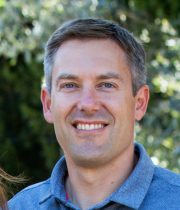
10:40-11:10am
Morning Refreshments
How NGS is moving the field towards comprehensive characterization: The NeXT generation of tissue profiling and liquid biopsy
- Rapid advances in NGS technologies have revolutionized progress in personalized cancer vaccines, precision medicine and biomarker discovery.
- Despite improvements in many aspects, there are still many existing challenges that must be addressed for both tissue profiling and liquid biopsy approaches.
- This roundtable discussion will review various prevailing issues and strategies facing the field.
Manager, Field Applications Scientist, Personalis
Dr. Hastak is a Manager, Field Applications Scientist with more than ten years of basic and translational experience in cancer therapeutics. At Personalis, Kedar provides scientific technical support and customer education on the NeXT Cancer Product Portfolio. Prior to joining Personalis, Kedar was an Instructor/ Senior Scientist at Stanford University’s Division of Oncology, where he led translational research studies to evaluate the efficacy of PARP inhibitors in treating breast and other solid tumor cancer models. Kedar completed his postdoctoral studies at the Cleveland Clinic Foundation and Stanford University, and received his PhD in field of Cancer Biology from Case Western Reserve University.
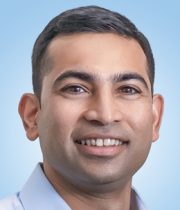
Networking Lunch
The modern immuno-oncology drug program has a great need for multi-faceted, complex biomarkers. However, the default choice for diagnostic assay development remains low-plex, manual pathology reads. These assays can produce high variability across interpreters, and lack the full contextual data to truly understand the drug’s effect on biology. The high cost of getting a drug to market includes the intense competition over finding the correct patients, making fast and accurate decisions critical to success. Data-centric, cell-based pathology analyses provide context beyond traditional scoring for any biomarker, along with a significant decrease in variability. The current paradigm of manual, single-marker reads may compromise patient selection and reduce the chance of finding responders.
Spatial biology solutions are now emerging for several demands across the immuno-oncology space. In particular, there is an urgent need to precisely characterize and understand the tumor microenvironment (TME). However, the biomarker requirements for a drug can also be tailored to its program. A CLIA-certified tissue imaging partner can generate spatial insights from monoplex, multiplex or CISH assays – allowing for specific customization to the study and the correct patients to be identified.
Chief Medical Officer, Flagship Biosciences

Conditionally active therapies (CABs)
- Conditionally Active Formats
- TME vs Systemic Activation
- Potential for Resistance to Conditionally Active Therapies
VP, Chief Scientific Officer and co-founder, Soteria Biotherapeutics
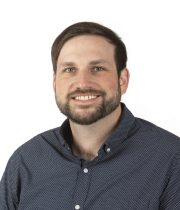
3:30-4:00pm
1-2-1 Meetings/ Networking Break
In Vitro Functional Bioassays for Evaluating Candidate Therapeutic Effectiveness in Immuno-Oncology
- In Vitro assays to accelerate new therapeutics development
- Macrophage polarization and suppression assays, T cell exhaustion assays, mixed lymphocyte reaction assays, NK assays
- Screening killing capacity
CTO and founder, ImmunXperts
Sofie has over 25 years of experience in the field of immunogenicity assessment (vaccines and biotherapeutics) and in vitro assay development with a focus on functional assays for immunogenicity, immune oncology and Cell and Gene Therapy products. She has extensive hands-on lab experience and has managed and coached several In Vitro teams over the last decade. From 2008 till 2013 she was Head of the In Vitro Immunogenicity group at AlgoNomics (Ghent, Belgium) and Lonza Applied Protein Services (Cambridge, UK). Prior to that, she worked at Innogenetics, Belgium for over 15 years.

Antibody-based immunotherapies: both the Fc portion and the target epitope matter
- With many immune checkpoint receptors being most highly expressed on Tregs what are the pros and cons of different Ig isotypes
- What is the effect of blocking immune checkpoint receptors on Tregs, when is that advantageous vs detrimental
- What are strategies to limit antibody-based immunotherapies to either affect Tregs or effector T cells
VP, Oncology, GigaGen
Dr. Stone is an award-winning immunologist with expertise in T cell immunology, immuno-oncology, and human immunology. At GigaGen she leads immuno-oncology research and discovery of antibody therapies with best-in-class potential. Dr. Stone was most recently Assistant Professor at The Wistar Institute Cancer Center where her independent laboratory focused on understanding the multiple mechanisms of action of first-generation immune checkpoint inhibitors, including anti-CTLA-4, with the goal of identifying strategies to overcome resistance. She also held the position Wistar Institute Assistant Professor of Pathology and Laboratory Medicine at the University of Pennsylvania where she was a member of the Institute for Immunology.

